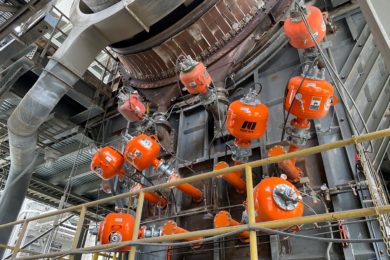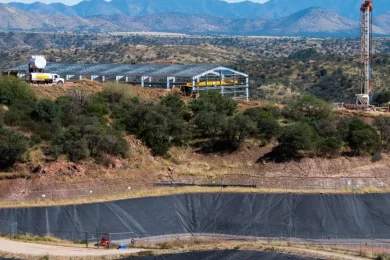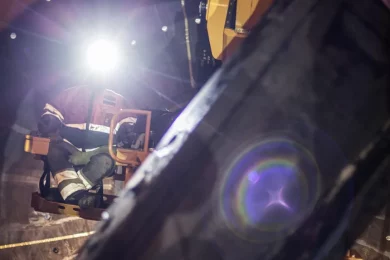According to Doe Run’s Jose Hansen, “Over the last 50 years, lead production and consumption has trended upward, even though end-use markets have changed over time. The demand is primarily influenced by China, the largest consumer of lead, and the fastest-growing economy, which affects the world’s marketplace. As these areas continue to develop, the infrastructure being built depends on applications that require lead-acid batteries.”
Three Doe Run executives recently shared their unique global metals expertise with attendees at the Battery Council International’s (BCI) 121st Convention and Power Mart Trade Show. Doe Run is America’s only integrated lead producer and a true lead lifecycle manager, recycling and producing the key ingredient in traditional lead-acid batteries and hybrid lead-acid battery systems for emerging hybrid vehicles.
“As we balance the need to manage resources wisely, yet fulfill increasing demand for a variety of emerging technologies, Doe Run’s recycling efforts serve a vital link in the future battery supply chain,” BCI Executive Vice President Maurice A. Desmarais said. “Doe Run helped us look at the global metals market in light of various industry changes, and understand how we can collectively work together with regulators to navigate complex environmental challenges.”
Hansen, Doe Run’s Vice President of Sales and Marketing, Lou Magdits, Director of Raw Materials, and Dan Vornberg, Vice President of Environmental Affairs, talked with conference attendees about key trends shaping the industry on a national and international scale.
“Replacement batteries for vehicles are keeping lead demand steady in most parts of the world. Meanwhile, old batteries are being replaced, regardless of economic conditions,” Hansen noted. “Looking into the future, high-tech batteries for hybrid vehicles, anti-idling systems for commercial vehicles and innovative storage for renewable energy will drive the market.”
Currently, lead-acid batteries use some three-quarters of the world’s lead. In addition, lead-acid batteries are recycled more than any other consumer product. Each year, Doe Run’s Buick Resource Recycling Division converts approximately 13.5 million lead-acid batteries back into raw materials for new battery production.
From a raw materials perspective, Magdits addressed the domestic factors impacting the industry. “While demand grows, new environmental regulations will challenge the domestic supply of lead,” Magdits said. “The US has dramatically reduced the allowable air emissions for lead, a reduction of 90% from previous levels. As the chief provider of this critical resource, we’ve tried to manage implications for the industry by working alongside regulators to make the appropriate improvements.”
In 2008, Doe Run completed the implementation of one of its most complex environmental improvement plans to date, retrofitting its smelting operations to meet air quality standards for lead. The entire plan took two years to complete at a cost of more than $8 million. Discussions and emissions tracking continue as more stringent regulations are enacted.
“For more than 140 years, Doe Run and its predecessors have helped supply the world’s need for lead,” said Vornberg, who oversees the company’s environmental compliance and planning efforts, including the plan completed in 2008. “We are stewards of a vital natural resource, and practicing environmental stewardship means that we’re both maintaining our operations and minimizing the impact from an environmental standpoint. Continuous analysis of information allows us to stay ahead of trends that may impact our business in the future. For the industry-at-large, an environmental task management system can help better position facilities, and then move them beyond regulations and towards sustainable environmental systems.”
In his closing remarks, Hansen summarised, “We see a balanced world market for lead in 2009, with production matching consumption. The near-term may be challenging, but the long-term outlook remains favorable for the lead industry and for our biggest customer, the battery industry, which is critical to modern civilization. Doe Run is focused on being nimble, serving as a dependable supplier to our customers and continuing innovation that keeps our company and our industry sustainable into the future.”
Based in St. Louis, The Doe Run Company is a privately held natural resources company and the largest integrated lead producer in the Western Hemisphere. Doe Run operates one of the world’s largest, single-site lead recycling facilities, located in Boss, Mo. Doe Run’s major six-mine complex on the Viburnum Trend in Missouri was covered in detail in IM’s December issue – download with the password: dr6e1hIe









